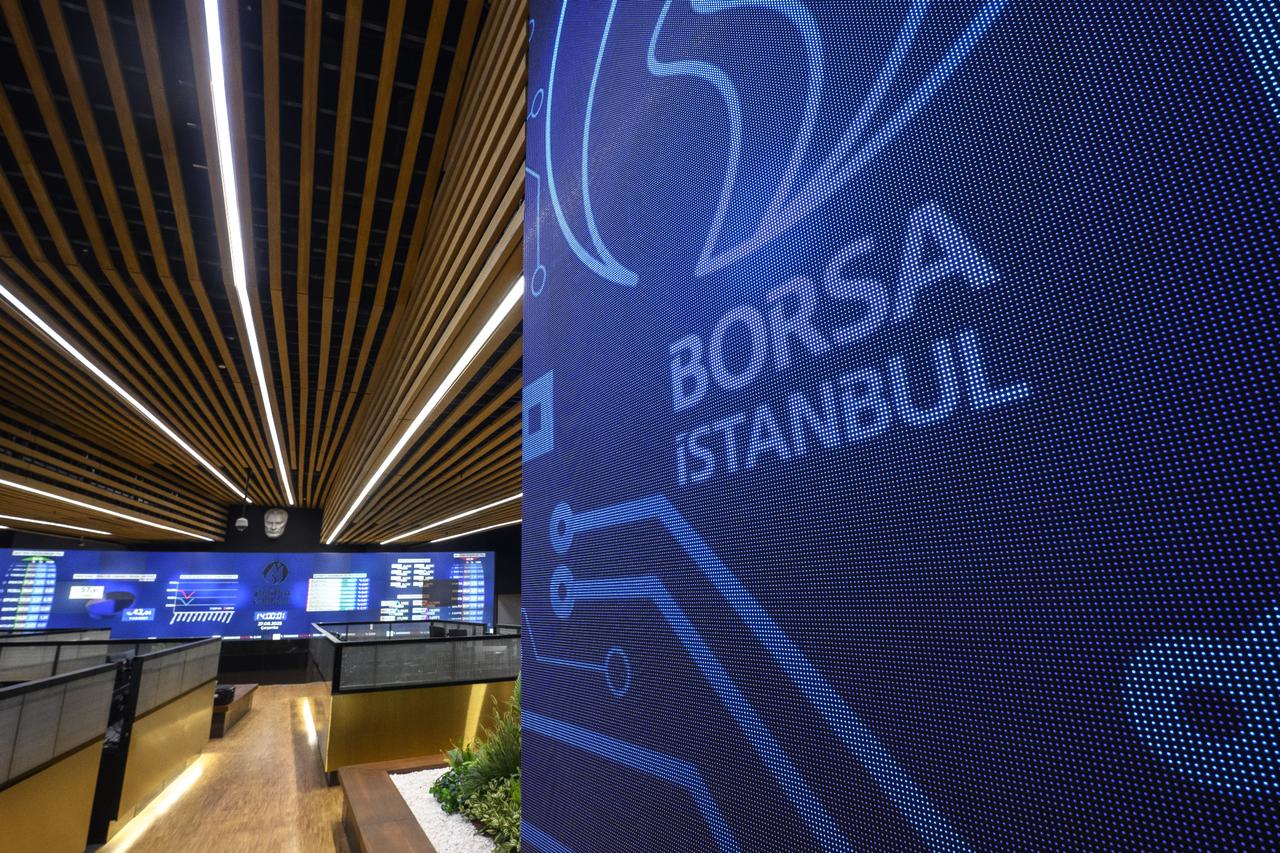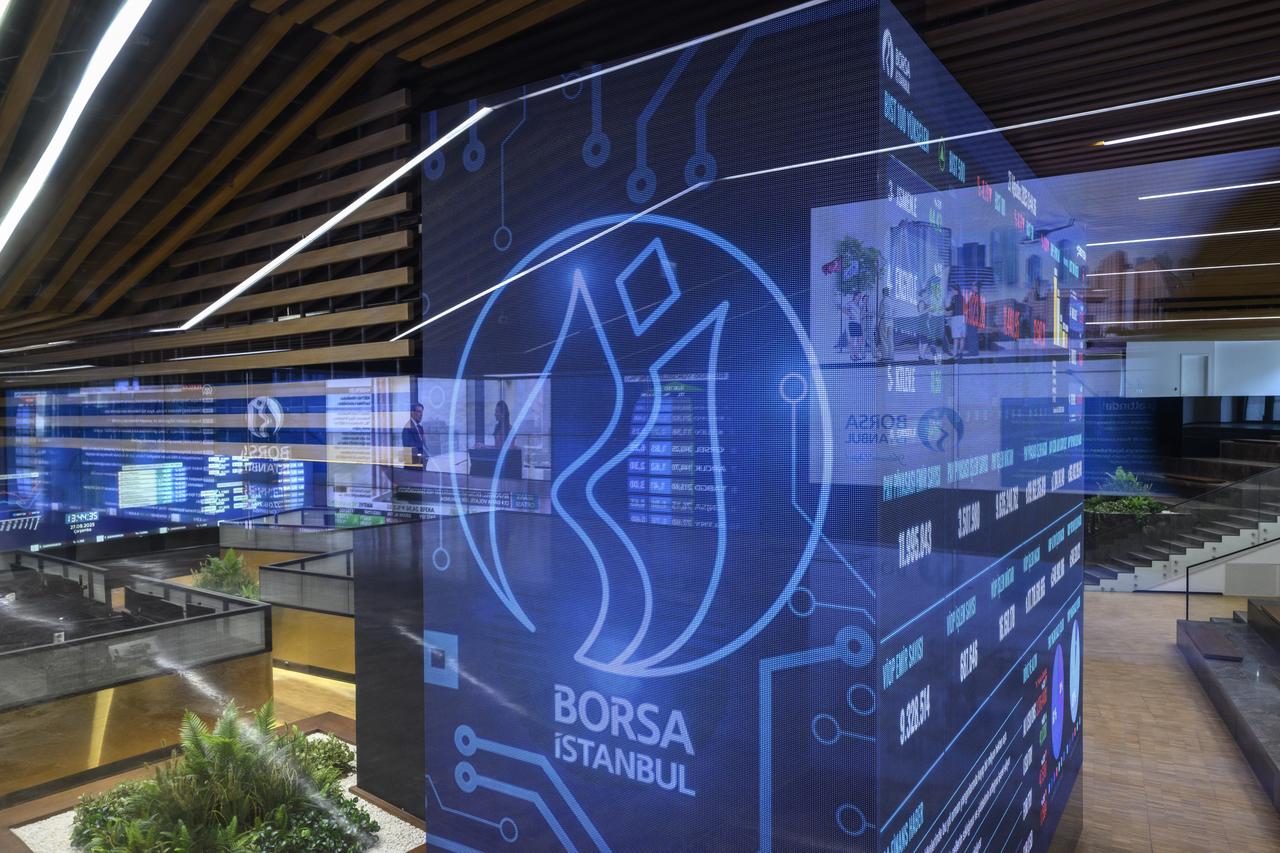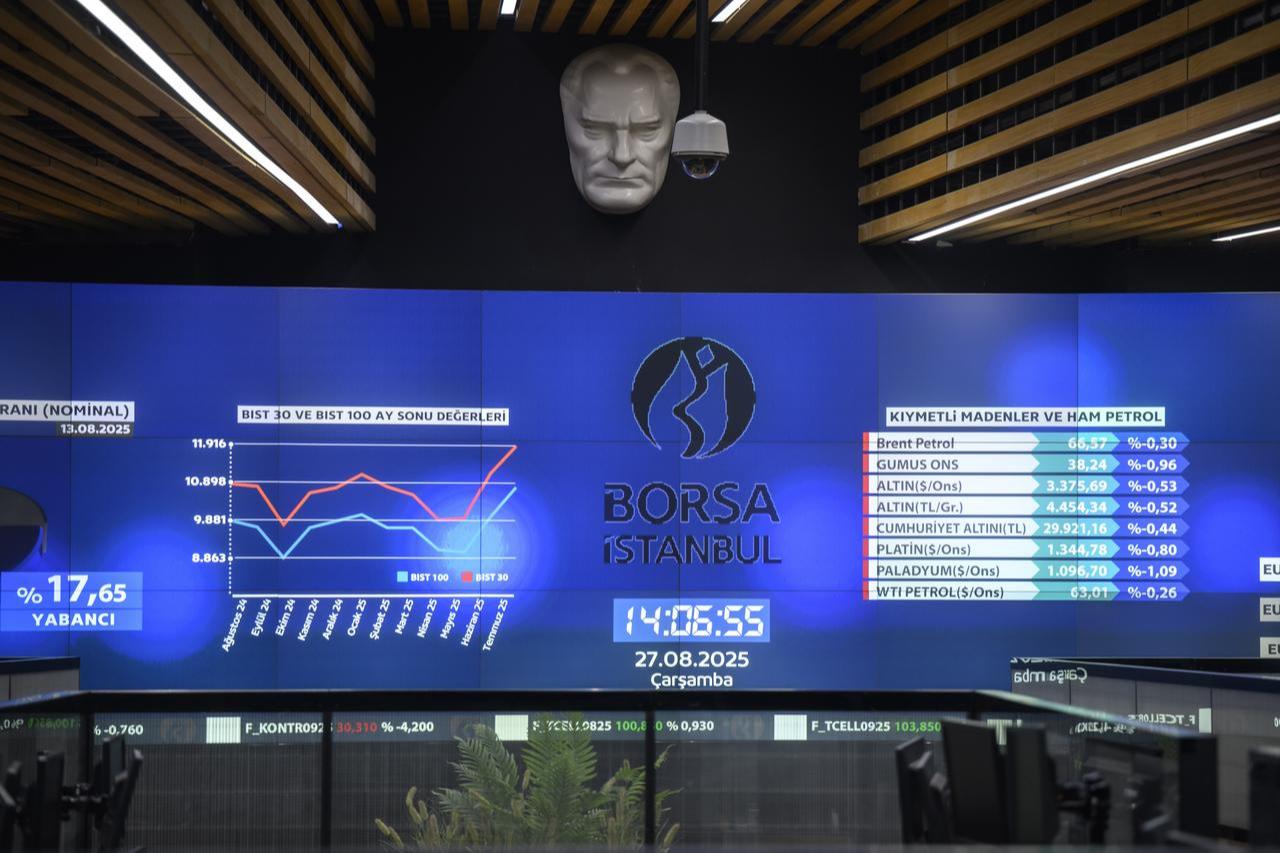
Türkiye’s stock exchange, Borsa Istanbul, has introduced revised rules for the circuit breaker system, stock-specific halts, and the application of the “up-tick rule” for short-selling, effective Sept. 1, 2025.
The adjustments are designed to update mechanisms that temporarily suspend or limit trading during sharp market moves.
Under the new framework, the index-based circuit breaker—a mechanism that halts trading to prevent excessive market volatility—will shift from a two-stage system to a single stage.
Currently, trading is suspended if the BIST 100 index drops 5% and again if it falls 7% or more within a single session.
From Sept. 1, trading will instead be interrupted once the index records a 6% decline in a day. The mandatory cooling-off period following such halts will also be reduced by 10 minutes, allowing trading to resume more quickly after a disruption.
Additionally, the rules have been updated for late-session volatility. If a circuit breaker is activated within the last 30 minutes of continuous trading, activity will be paused and then restarted in the closing auction session.
Previously, this rule applied if the halt occurred within the last 60 minutes before closing.
By shortening the timeframe to 30 minutes, the exchange aims to keep the market open for longer under normal conditions while still maintaining a structured closing process when volatility spikes near the end of the day.
In the derivatives market, if the index-based circuit breaker is triggered after 5:30 p.m. local time (GMT+3), stock and index-linked contracts will resume trading at 6:08 p.m.
For equities, the post-circuit-breaker order collection period will be standardized at 10 minutes for all continuously traded shares.

In stock-based trading, the uptick rule—which requires that short sales be executed at a price higher than the last trade—will now be triggered if the BIST 100 index falls by 2%, down from the current 3% threshold.
As a result, short-selling will again be permitted starting Sept. 1, following a temporary prohibition introduced in March after a market downturn.
The restriction, first imposed in March and extended three times, had been designed to curb volatility and expired on Aug. 29 as the Capital Markets Board did not extend it.
The change came as the BIST 100 index reached new all-time highs, supported by continued foreign inflows, and is aimed at maintaining positive investor sentiment amid accelerating capital inflows.

Separately, Borsa Istanbul announced preparations for a transition to a shorter settlement cycle known as "T+1." In settlement terminology, "T" refers to the trade date, and the number indicates how many business days later the transaction is finalized, meaning the securities and cash are exchanged.
Under the current "T+2" system, trades are settled two business days after execution.
Moving to T+1 will shorten this period to a single day, reducing counterparty risk and aligning Türkiye’s practices with major international markets that have already adopted the model.
To facilitate the change, test environments for end-to-end trials will be launched on Jan. 5, 2026. All development, testing, and implementation phases are scheduled to be completed by Dec. 31, 2026.